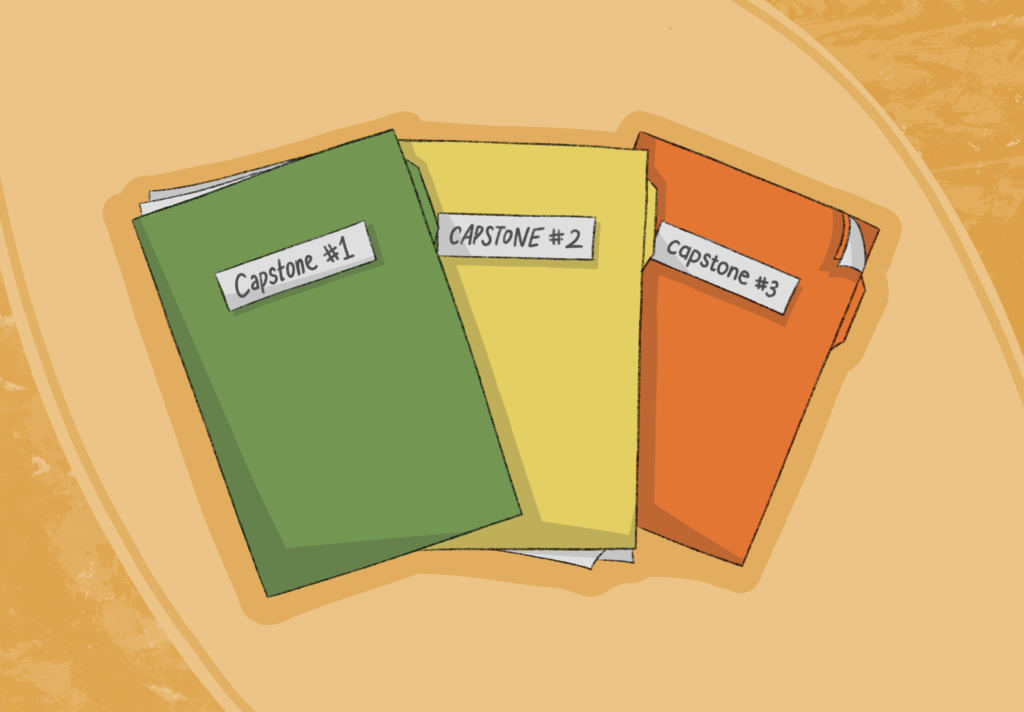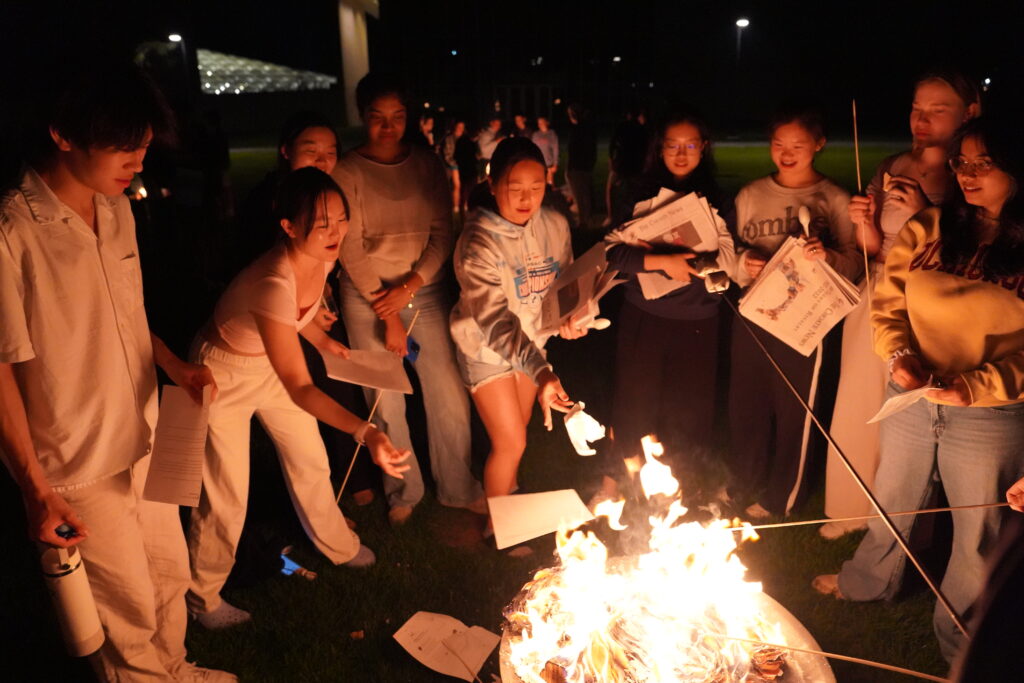
By Deyi Meng ’26
The Capstone Program merges classroom learning with real-world application, allowing students to pursue an independent research project in their chosen field. Every year, numerous seniors undertake this rigorous academic journey.
Each capstone consists of four classes within the existing curriculum and a directed study in the spring. Choate supports these endeavors by providing participants with an adviser who meets with students regularly and a librarian who helps students identify resources. This year, students have explored a wide range of topics, from quantum physics to reproductive justice. Here are some of the many incredible capstones from this year’s cohort.
Creative Writing
Andreas Wimmershoff Gonzalez ’24 wrote a novel manuscript for his final project. Wimmershoff Gonzalez described the story as “a road trip novel that follows an insomniac, a student filmmaker, and a restaurant critic as they move through the Midwest [and] East coast.” Having always been interested in English, Wimmershoff Gonzalez said, “I think Capstone really gave me that niche to be able to focus on what I want to do.”
Time management proved a major challenge for him during the yearlong program. He attributed his ability to overcome this obstacle to adviser support, sharing, “All the advisers in Capstone are really great at ensuring you get what you need to get, especially considering you’re the ones who reach out to them.”
Executive Function: Implications For Education
Zainab Khokha ’24 researched how motor movement and rhythmic activities strengthen executive function skills in children ages 6-10. Over the past year, she has developed games to improve the attention spans and academic performances of young children.
However, when Khokha began planning her Capstone project, she was not sure exactly how to connect two topics she was interested in: neuroscience and education. “[Taking] what you want to learn and then being able to funnel that into something tangible … was really difficult,” she reflected. Nonetheless, Khokha’s project allowed her to further her interests and develop essential research and life skills.
Feature-Length Screenplay
As an avid participant in all things theater on campus, Grace Walters ’24 is the first student to write a feature-length screenplay for her capstone project.
Walters, a native Virginian, hopes to “capture the beauty and misgivings of Virginia and what it means to be coming of age in the 2020’s” through her screenplay. Walters cited “A trip to the Shenandoah river state park, [her] summers growing up in Virginia, and the aesthetics of Call Me By Your Name” as inspirations for the screenplay.
Natural Swimming Pools
Lauren Hsu ’24 investigated water quality issues in swimming pools. More specifically, Hsu looked into “how regulations, chemicals, filtration mechanisms, and new technology affect water quality, public health, and sustainability.”
A challenge Hsu faced during her project was the small size of the water quality research field. “It’s good in the sense that all the professors I’ve reached out to know each other, [but] it means there’s not a lot of information out there. It can feel a little limiting sometimes because there just aren’t a wide variety of perspectives,” Hsu said.
Hsu’s work culminated in the creation of a website, allowing her to compile her research and allow others to see her hard work and passion. Reflecting on her work, Hsu said, “It’s definitely reinforced the idea that I want to be involved in the water sector.”
The Sociocultural Progression of Reproductive Health
Mikayla DaSilva ’24 undertook an interdisciplinary project, which culminated in a paper about the sociocultural impacts of the Dobbs v. Jackson decision, the Supreme Court case that ruled that the U.S. Constitution does not guarantee abortion rights for low-income women. Through Capstone, DaSilva further developed her passion for reproductive justice through classes like Crime, Deviance, and Social Control and American Studies.
DaSilva noted that many adults have helped her overcome the challenge of maintaining a yearlong project. “I’ve tried to have conversations with teachers in different disciplines to find other perspectives to analyze my research through, which definitely makes me more motivated to keep going,” she said.
To prospective applicants of the Capstone Program, Humanities teacher Mr. Jim Davidson said, “I think certainly one of the things I try to emphasize with kids who apply, this has to be something they’re really motivated to do.” These students’ hard work will culminate in their Capstone presentations, which will be held on May 20 in the Library Reading Room. Scholarly Seniors:
Capstone PrOJECTS OF 2024




